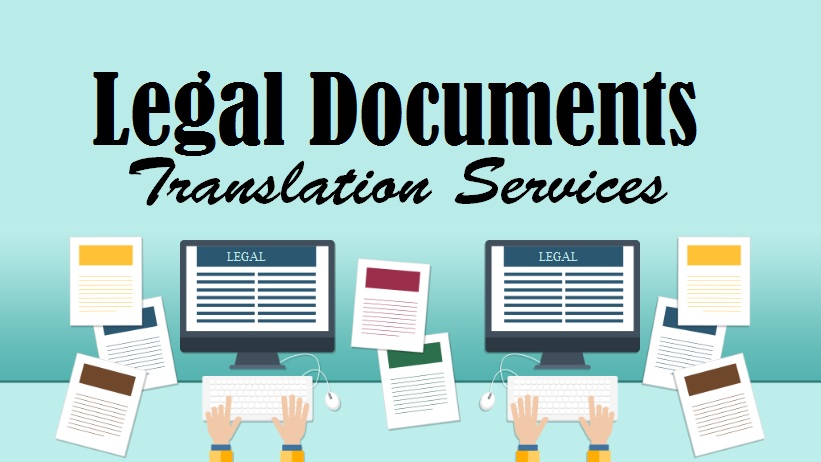Introduction
Legal translation services play an important role in providing access to justice across language barriers. In a globalized world, legal documents often need to overcome language barriers to uphold principles of fairness and equality. This guide aims to highlight the importance of legal translation services, answer frequently asked questions, and highlight their importance in delivering justice.
Table of Contents
Legal Interpreting Services: Bridging Language Gaps in the Legal Arena
Effective communication is the cornerstone of navigating the intricate legal landscape. Legal interpreting services play a crucial role in ensuring that individuals from diverse linguistic backgrounds can fully grasp the complexities of the legal system. By facilitating clear and accurate communication, these services act as a bridge, connecting people with the legal resources they need.
Why Legal Interpreting Matters
Legal interpreting services are not just about words; they are about access and participation. By breaking down language barriers, these services empower individuals to comprehend and actively engage in legal proceedings. This inclusivity is not just a matter of convenience but a fundamental pillar of a fair and impartial legal system, where everyone, regardless of their native language, has the right to be heard and understood.
The Significance of Legal Interpreting Services
Precision is paramount in legal settings, where nuances can make a significant difference. Legal interpreters, armed not only with linguistic prowess but also with a deep understanding of legal terminology, serve as essential conduits. Their role goes beyond mere translation, as they navigate the intricate dance between languages and legal concepts, ensuring that every detail is accurately conveyed.
Understanding the Role of Legal Interpreters
Interpreting Legal Jargon
Legal interpreters navigate the intricate realm of legal language with finesse, unraveling complex jargon to provide clear and precise interpretations. Their in-depth knowledge extends beyond linguistic nuances, encompassing the intricate web of legal terminology to guarantee accurate communication in legal proceedings.

Maintaining Neutrality and Confidentiality
Legal interpreters serve as impartial conduits, steadfastly adhering to the principles of neutrality and confidentiality. Beyond merely conveying words, they act as guardians of unbiased communication, ensuring that sensitive information remains protected and that their presence doesn’t tilt the scales of justice.
Benefits of Utilizing Legal Interpreting Services
Ensuring Fair Trials
Legal interpreters act as the bridge that spans linguistic gaps, fostering an environment where every participant in the legal process can comprehend and communicate effectively. This not only safeguards the rights of individuals but also contributes significantly to the overall fairness of legal proceedings, ultimately upholding the integrity of the justice system.
Access to Legal Assistance
Through their language expertise, legal interpreters become catalysts for inclusivity, breaking down language barriers that might hinder access to legal aid. By facilitating effective communication, they empower individuals to navigate the legal landscape, promoting a more just and equitable system of legal assistance for all.
Legal Interpreting Services: A Closer Look
The Process of Legal Interpretation
Legal interpreters delve into the labyrinth of legal intricacies, weaving a seamless bridge between languages and legal cultures. Their role transcends literal translation, requiring a nuanced understanding of legal contexts, cultural sensitivities, and the ability to convey the precise essence of messages. This multifaceted approach ensures that the intended legal meanings are accurately conveyed.
Modes of Legal Interpreting
Legal interpreters are versatile in their methods, seamlessly transitioning between simultaneous interpretation in fast-paced courtrooms and the meticulous pace of consecutive interpretation during depositions. Adapting to diverse scenarios, they employ an array of modes to guarantee that legal communication remains fluid, accurate, and in compliance with the distinct demands of each legal setting.
FAQs: Unveiling the Mysteries of Legal Interpreting Services
Why is legal translation important?
Legal translation is very important for conveying legal concepts accurately and clearly in different languages. Misunderstandings can have serious consequences, impact court proceedings, and jeopardize justice.
What types of documents require legal translation?
Legal translation service cover a wide range of documents, including contracts, court decisions, legal opinions, laws, and more. Documents with legal implications may need to be translated for cross-border or multicultural purposes.
How is legal translation different from general translation?
Legal translation services in Dubai require specialized knowledge of legal terminology and the legal system. To accurately convey the intended meaning, translators must be familiar with the legal framework of both the source and target languages.
Can machine translation replace human translators in the legal field?
Machine translation has made advances, but it cannot replace the nuanced understanding and context that human translators provide in legal matters. Legal translation requires accuracy and cultural sensitivity that cannot be fully captured by machines.
What challenges do legal translators face?
Legal translators face challenges such as maintaining accuracy and confidentiality and responding to the ever-evolving nature of legal language. It’s important to stay up to date with legal terminology and understand cultural nuances.
Conclusion
Language should not be an obstacle in the pursuit of justice. Legal translation services act as a bridge, allowing individuals to understand and participate in the legal process, regardless of their linguistic background. By addressing the complexity of legal terminology, these services significantly contribute to the fairness and integrity of legal systems around the world. Leveraging the expertise of legal translators is an important step towards a more inclusive and just global society.




